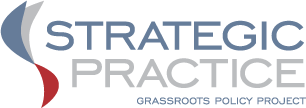To Play the Fool
"The Poor Are Treated Like Criminals Everywhere, Even at the Grocery Store."
"Americans Split Over Whether Businesses Must Serve Same-Sex Couples."
"Arkansas Legislature Follows Indiana and Passes Bill Allowing Discrimination Against LGBT Community."
"Ads with Adolf Hitler Appear on Buses."
These are just a few of today's more disturbing headlines. I keep waiting for someone to say ‘April Fools!’ Unfortunately, they are not Onion headlines.
At moments like these, we need more truth-telling jokers, jesters and fools. Lest you think that 'fool' is a pejorative term, consider this: the fool can reveal hidden truths about our society.
No one used the truth-telling fool as well as Shakespeare. The Shakespearian fool is a master of subversion. He has no illusions and takes little comfort in the conventions of his time. Fools and jesters can offer the audience glimpses of a different worldview than those held by the majority of the play's characters. Fools can disrupt business as usual in non-violent ways, playing with familiar words and images, giving them new meanings, sparking critical thinking. As Isaac Asimov observed, the great secret of the successful fool is that he is no fool at all.
Ordinary people acting together for social justice can play the jester’s role to great effect, using theater and art to expose society’s contradictions. One example is the flash mob that draws attention to an issue. Recent actions related to Black Lives Matter have used story-telling, spoken word and music to enlarge the debate and engage new groups of people in movement-making. Organizers in states and cities who have pushed for reforms of payday lending and other predatory practices have used popular culture, art, chants and clever signage to capture our attention and draw us into the story. They unmask the motives of the bankers and legislators who benefit from predatory practices. There are many other examples, like the young Dream Defenders. They give us a glimpse of what society could look like when westand together.
In “Playing the Fool” Mark Edmunson imagines an April Fools Day where we embrace
the challenges posed by the Fool. On such a day, “we'd test our capacity to hear the truth, in slant, peculiar and painful forms, and to use it to take a few steps in the general direction of freedom. The day would be a trying, exhilarating, perplexing and sometimes joyous affair.”
Be a clown, play the fool, and have a good April Fools Day.

